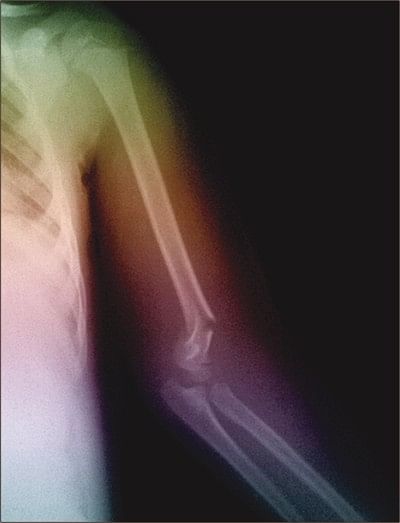First aid for fractures

A fracture is a broken bone. It requires medical attention. If the broken bone is the result of major trauma or injury, seek emergency medical help. Also call for emergency help if:
* The person is unresponsive, not breathing or not moving. Begin cardio-pulmonary resuscitation (CPR) if there is no respiration or heartbeat
* There is heavy bleeding
* Even gentle pressure or movement causes pain
* The limb or joint appears deformed
* The bone has pierced the skin
* The extremity of the injured arm or leg, such as a toe or finger, is numb or bluish at the tip
* You suspect a bone is broken in the neck, head or back
* You suspect a bone is broken in the hip, pelvis or upper leg (for example, the leg and foot turn outward abnormally)
Take these actions immediately while waiting for medical help:
Stop any bleeding. Apply pressure to the wound with a sterile bandage, a clean cloth or a clean piece of clothing.
Immobilise the injured area. Don't try to realign the bone, but if you have been trained in how to splint and professional help is not readily available, apply a splint to the area.
Apply ice packs to limit swelling and help relieve pain until emergency personnel arrive. Don't apply ice directly to the skin — wrap the ice in a towel, piece of cloth or some other material.
Treat for shock. If the person feels faint or is breathing in short, rapid breaths, lay the person down with the head slightly lower than the trunk and, if possible, elevate the legs.
Who's at greater risk of hip fracture?
A hip fracture can be a very serious injury. People who break a hip are up to 18 percent more likely to die within a year that other people their age.
While some factors are beyond your control, there are things you can do to reduce your risk. Following factors increase the risk of hip fracture:
* Being 65 or older
* Being female
* Having a family history of fractures in older age
* Having a slender, slim body type
* Not getting enough dietary calcium
* Drinking too much alcohol or smoking
* Having impaired eyesight, arthritis or poor balance
* Taking certain medications that may make you dizzy or weak
* Having some forms of dementia

 For all latest news, follow The Daily Star's Google News channel.
For all latest news, follow The Daily Star's Google News channel. 



Comments